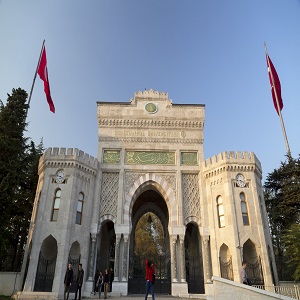Turkey Evolving as Preferable Destination For Higher Education
 Turkish higher education has expanded significantly with a marked increase in the number of universities, students and also academic staff. With a dramatic growth in the number of institutions of higher education in the last decade, higher education for international students has become more accessible in Turkey. Recent years have witnessed an increasing rate of inbound student mobility in Turkish universities, with the majority originating from the Middle East, Central Asia, the Balkans and Africans Countries.
Turkish higher education has expanded significantly with a marked increase in the number of universities, students and also academic staff. With a dramatic growth in the number of institutions of higher education in the last decade, higher education for international students has become more accessible in Turkey. Recent years have witnessed an increasing rate of inbound student mobility in Turkish universities, with the majority originating from the Middle East, Central Asia, the Balkans and Africans Countries.
Today, Turkey offers a healthy and welcoming higher education environment to the students. Many universities also provide services and advisers to help international students adjust to living in Turkey. Moreover, there are now 208 universities in Turkey with a population of 84 million. The number of students is more than 8 million. With this number of students, Turkey is the first country that has the most students in the European Higher Education Area. There are more than 45,000 different programs at 208 universities.
With massive developments in the education industry, there is no doubt that Turkey has now evolved as a preferred spot for higher education for international students. In this article we have listed the top benefits of pursuing Higher Education in Turkey.
High Standards Of Education
The higher education system of Turkey has developed significantly in the last few decades in both quality and quantity. Turkish universities now offer a variety of majors and choices for international students.
The quality of the higher education system is also reflected in international ranking lists. According to the Times Higher Education BRICS & Emerging Economies Ranking 2017, there are 22 Turkish universities in the top 500 university list, 9 Turkish universities took place among the 800 world universities ranking by QS in the UK, and 19 Turkish universities took place among the top 1000 world universities ranking by METU Informatics Institute.
Turkish universities offer high-quality studying programs and they are an integral part of the European education space. There is an increasing number of universities offering programs in English, including engineering, medicine, business, humanities, and finance.
Turkey is a member of many different international platforms and also part of the Bologna process since 2001. Firstly, this means that all students can continue their education in other countries with ECTS (European Credit Transfer System) and secondly, they can get their diplomas recognized by other countries.
Value of Turkish Certification
In Turkey, the escalation of higher education in terms of both quality and quantity has been adopted as the primary goal. Some Turkish universities are powerful in international links. They have been carrying out various international projects and student exchanges for years.
With the establishment of the Turkish National Agency Turkish Universities have also started participating in the EU Erasmus programme since 2003. Many Turkish Universities have significantly progressed in ECTS work. During the last two years, there has been a great interest and activities at Turkish universities in terms of both teaching and teaching staff mobility.
Turkey is further hugely investing in scientific research, and currently there are nearly 70 thousand researchers in various fields. Owing to this the budget of scientific research in Turkey rose from 8.5 million TRY in 2009 to 20 million US dollar in 2015 and thus faster than the countries of the Economic Cooperation Organization and International Development in doubling the allocation of research and scientific studies, and Turkey is working o increase the budget of practical research by 2023.
Lower Cost Of Living
The cost of living in Turkey is comparatively low when compared with other developed countries of the world. This scenario positively impacts the decision making while opting for a university abroad. Adding to that, when compared with other international students destinations, Turkey offers significantly low tuition fees and lowest living expenses.
According to the Number’s 2017 Cost of living in Turkey is 44.41% lower than in the United States with monthly expenses for the living of a foreign student ranging from at least 500-700 USD, while administrative fees are approx. 100-150 USD per semester.
Growth of Education Policy in Turkey
The government of Turkey is working aggressively to put forward the policies that enable the Turkish institutions to realize their mission in a more qualified way. Moreover, due to measurable growth policies set forth by the government, decisions and investments are made within the framework of mission differentiation.
Alon with the development in the field of internationalization, the Turkish education system has shown a great improvement over the last few years. Different strategies are now being developed to enable the Turkish college system to become an international center of attraction and to gain more students and instructors from more countries.

